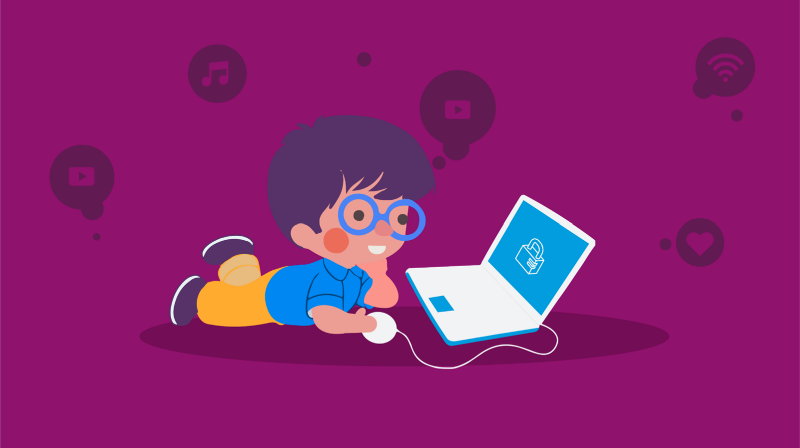Cyber Awareness for Children

The coronavirus has affected the way people work around the globe. All operations are being conducted online, and we are probably facing one of the biggest shifts in work culture in the history of mankind. This does not pertain to just IT companies; even schools and colleges are getting accustomed to online teaching and the exchange of information through the internet.
During these trying times, one must not compromise on the safety and security of the people using these facilities, especially children. The internet is a dangerous place, and children need to be made aware of the dos and don’ts while using online services and applications, but at the same time, we must not intimidate them too much in a way that they feel scared of the internet. This article is our attempt at providing a few child-friendly guidelines which you can discuss with your children so that they can make the most out of all the opportunities coming their way while feeling safe and happy.
Make sure your children get used to sharing their activities on the internet with you. It needs to be imparted to them gradually so that they tell you what they are doing on the internet in between casual conversations. It is important to ensure that they don’t feel that they will get into trouble if they reveal this information. Whatever they say, try not to get upset over it, rather if you feel something is not right, help them understand why.
Ensure that your child does not reveal personal information like phone numbers and addresses to anyone on the internet. Children need to be informed that this is sensitive data, and there is a high probability of misuse. It is a good idea to tell them how this information can be misused as well so that in case they encounter something like this, they can make a smart decision.
Speak to them about fake accounts, and that not everyone on the internet is who they claim to be. Children should be aware of the fact that there is a lot of room for cheating and scams on the internet, but it is also important to teach them how to face this without feeling intimidated. Tell them that it’s okay to say no if they feel that someone on the internet is making strange requests or asking for personal information such as photos or contact details. Also, teach them to deal with cyberbullies confidently. Let them know you are there to support them. It’s a virtual world after all.
Make sure they are aware of useful online resources, such as e-learning websites and apps, rather than online games and social media. Even if your child is browsing through YouTube, there are numerous interesting channels focused on education for children which can prove to be beneficial. Make sure your child uses these opportunities to the maximum.
Help them understand some basic security measures which can be taken, such as choosing a strong password and two-factor authentication. Make sure they realize how these steps protect them on the internet. It is also important to teach them what computer viruses are and that they should always be careful of what they download.
The last point, and probably the most important one, is to help your child understand that there is a whole world to explore beyond the internet. When they are done with their online classes, and some leisure time on the internet, encourage them to take part in other indoor or outdoor activities. You can also try some family activities, which will help them in their overall growth and brain development.
In this rapidly growing virtual world, it is important to be safe on the internet, for children and adults alike. It is also important to know when it’s time to keep aside your gadgets and get back into the real world. Wishing your child a happy learning experience on the internet!
Enjoy Reading This Article?
Here are some more articles you might like to read next: